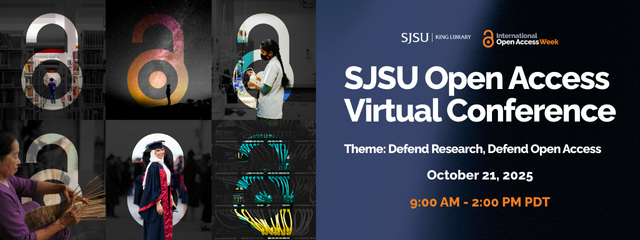Location
King Library 219
Start Date
25-10-2013 11:00 AM
End Date
25-10-2013 11:30 AM
Description
Each year brings more open access peer-review journals to the humanities and social sciences. Yet despite this proliferation, for-profit publishers continue to dominate, and hold the most prestigious journals in their portfolios, pushing the tipping point imagined by open access advocates seemingly out of reach. This project examines the social life of academic publishing to better understand the obstacles preventing a more robust turn to open access, one that does not simply mean more journals, but one that sees the more prestigious journals opting for an open access platform.
Drawing on the work of cultural sociologist, Pierre Bourdieu, I examine social relations in the cultures of academic authors and open access advocates. While attention has been directed toward the importance of social status acquisition in the humanities and social sciences, I argue, open access initiatives too often fail to take this research into account, and, as a result, underestimate the durability of the social structures influencing author decisions when calling for a culture change in academic publishing. I also examines the culture of open access initiatives, to show how the composition of symbolic value within these projects can, at times, come to detract from the invitation they hope to extend to academia.
Against a tendency to see academic publishing platforms as culture-less enterprises, I argue for a more reflexive approach, one that takes into account how contested conceptions of symbolic and cultural capital influence the decisions of authors and open access publishers. I conclude with a discussion possible changes to open access publishing, changes which may jump start the open access movement in the humanities and social sciences.
Included in
Arts and Humanities Commons, Library and Information Science Commons, Sociology of Culture Commons
Culture Clash: Symbolic Capital and the Limits to Open Access Journal Growth in the Humanities and Social Sciences
King Library 219
Each year brings more open access peer-review journals to the humanities and social sciences. Yet despite this proliferation, for-profit publishers continue to dominate, and hold the most prestigious journals in their portfolios, pushing the tipping point imagined by open access advocates seemingly out of reach. This project examines the social life of academic publishing to better understand the obstacles preventing a more robust turn to open access, one that does not simply mean more journals, but one that sees the more prestigious journals opting for an open access platform.
Drawing on the work of cultural sociologist, Pierre Bourdieu, I examine social relations in the cultures of academic authors and open access advocates. While attention has been directed toward the importance of social status acquisition in the humanities and social sciences, I argue, open access initiatives too often fail to take this research into account, and, as a result, underestimate the durability of the social structures influencing author decisions when calling for a culture change in academic publishing. I also examines the culture of open access initiatives, to show how the composition of symbolic value within these projects can, at times, come to detract from the invitation they hope to extend to academia.
Against a tendency to see academic publishing platforms as culture-less enterprises, I argue for a more reflexive approach, one that takes into account how contested conceptions of symbolic and cultural capital influence the decisions of authors and open access publishers. I conclude with a discussion possible changes to open access publishing, changes which may jump start the open access movement in the humanities and social sciences.

